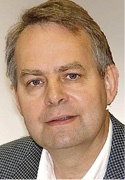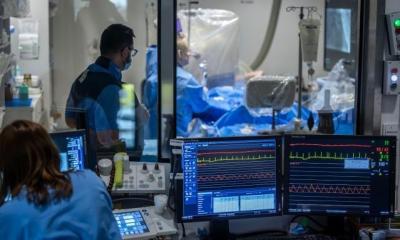Quality control via round robin tests
If a parameter is determined with different test systems the results must still be comparable. This sounds simple, but is hard to achieve.

The quality of medical laboratories is controlled via round robin tests, and is assured through the evaluation of results by the participating laboratory and the respective manufacturer – a process where reference institutions act as mediators. European Hospital interviewed Professor Ingo Schellenberg, Vice President of the Society for the Promotion of Quality Assurance in Medical Laboratories (INSTAND) e.V., about the long road from internal and external quality control to active quality management.
Over 40 years ago (1971) the German Medical Association (GMA) issued the first guidelines on the implementation of internal and external quality control for clinical chemistry. The regulations were not implemented by the state but through medical self-administration. The objective was to focus different initiatives from the respective specialist associations for the implementation of laboratory-medical examinations and to establish an interdisciplinary concept for quality assurance in this area of medical diagnostics.
Those guidelines have been updated and adapted to new scientific and technical developments several times. The new aspect is that not only internal and external quality controls are obligatory but also the basics of a quality management system.
Achieving accreditation or certification as a clinical laboratory necessitates the compilation of a quality management handbook that shows day-to-day processes - up to the 1990s the responsibility of the National Measurement Offices in the federal German states, i.e. of governmental organisations. Presently, the German Medical Association has appointed two main organisations for external quality control, i.e. for round robin (or inter-laboratory) testing, The Reference Institute for Bioanalytics (RfB) in Bonn, a foundation outsourced from the German Society for Clinical Chemistry and Laboratory Medicine, and the German Society for the Promotion of Quality Assurance in Medical Laboratories (INSTAND) e.V., a specialist scientific-medical association.
Describing this special structure, Professor Ingo Schellenberg, Vice President of INSTAND, said, ‘We have an interdisciplinary approach and, as a specialist scientific-medical association, work closely with medical associations. Not only chemists or laboratory medicine specialists are involved in the individual round robin tests but also the respective medical specialists. Endocrinologists contribute their specialist competencies to the planning, implementation and evaluation of hormone tests. The two most important specialist associations for virology, to name another example, have long appointed a joint head of round robin testing – leading virologist Professor Heinz Zeichardt of Charité Berlin, reports to a joint diagnostics commission four times a year.
‘This commission not only evaluates round robin tests results but also determines strategies for the future. If, for example, there’s a rise in the occurrence of hantavirus due to a major increase in travel, with the threat of an impending epidemic, it makes sense to make the appropriate test available as promptly as possible.’ Prof. Schellenberg sees this as a competitive advantage: the customers – clinical laboratories – are not only offered a broad, but also up-to-date range of services.
Germany’s politicians now also desire this competition. Previously, the country’s market was shielded from European influence and the GMA only appointed national reference institutions. However, in the course of European developments, this will no longer be sustainable. Finnish as well as British round robin test organisations have already applied for licenses in Germany. In future it will only be suitable qualifications and capabilities and – an important requirement stipulated by the GMA – independence from commercial interests that count. Device or test sera manufacturers, whose natural interest it is to market their products, will be denied access.
‘These days, participants in our round robin tests come from all over the world,’ said Prof. Schellenberg. ‘For instance, in the case of allergy testing, from France, Italy, Austria, Switzerland and Turkey. Those responsible for the tests no longer come only from Germany but also Switzerland, Austria and the USA. In virology, a large number of participants come from Russia and Poland and, he adds, ‘even hospitals from Argentina and Chile participate which we didn’t solicit; they found their own way to us. Quality assurance is mandatory there as well, and certification of an independent German organisation is highly regarded.’ There are no logistic problems as all control samples are shipped lyophilised.
The primary objective of the round robin tests is to improve comparability. The doctor in charge of treatment, who wants a laboratory result, must be certain that the same parameters used would also have been used in the same way elsewhere. The round robin test, the shipping of the same control samples to all laboratories and the central evaluation of results determined there, ascertains a certain status. ‘This is quality control, i.e. only an indicator,’ the professor pointed out. ‘Quality assurance is the reaction to this, and is carried out by the laboratories – and manufacturers. This is in their mutual interest: the laboratory wants to keep its accreditation and the manufacturer wants to keep its customer.
‘We pass the anonymised results to all manufacturers who ask for them. If a laboratory fails a test the manufacturer will ask us if they can talk to the respective participant. We then inform the laboratory and, if they are in agreement, establish contact so that they can jointly work on the causes.’ Testing, training and moderating, that’s the service offered by INSTAND to ensure comprehensive understanding of quality assurance and quality management.’
PROFILE
Clinical chemist Professor Ingo Schellenberg has worked on the quality assurance of laboratory-medical procedures for more than 30 years, beginning as a department manager in the clinical laboratory at Dessau Regional Hospital and as director of the regional laboratory for quality control of diagnostic test methods (BLQ) in former East Germany. In the ’90s he trained Weights and Measures Inspectors and today directs the Centre of Life Sciences at Anhalt University of Applied Sciences in Bernburg.
Prof. Schellenberg leads the round robin in vitro allergy diagnostics test at the Society for the Promotion of Quality Assurance in Medical Laboratories (INSTAND e.V.) of which he is Vice President
26.07.2013











